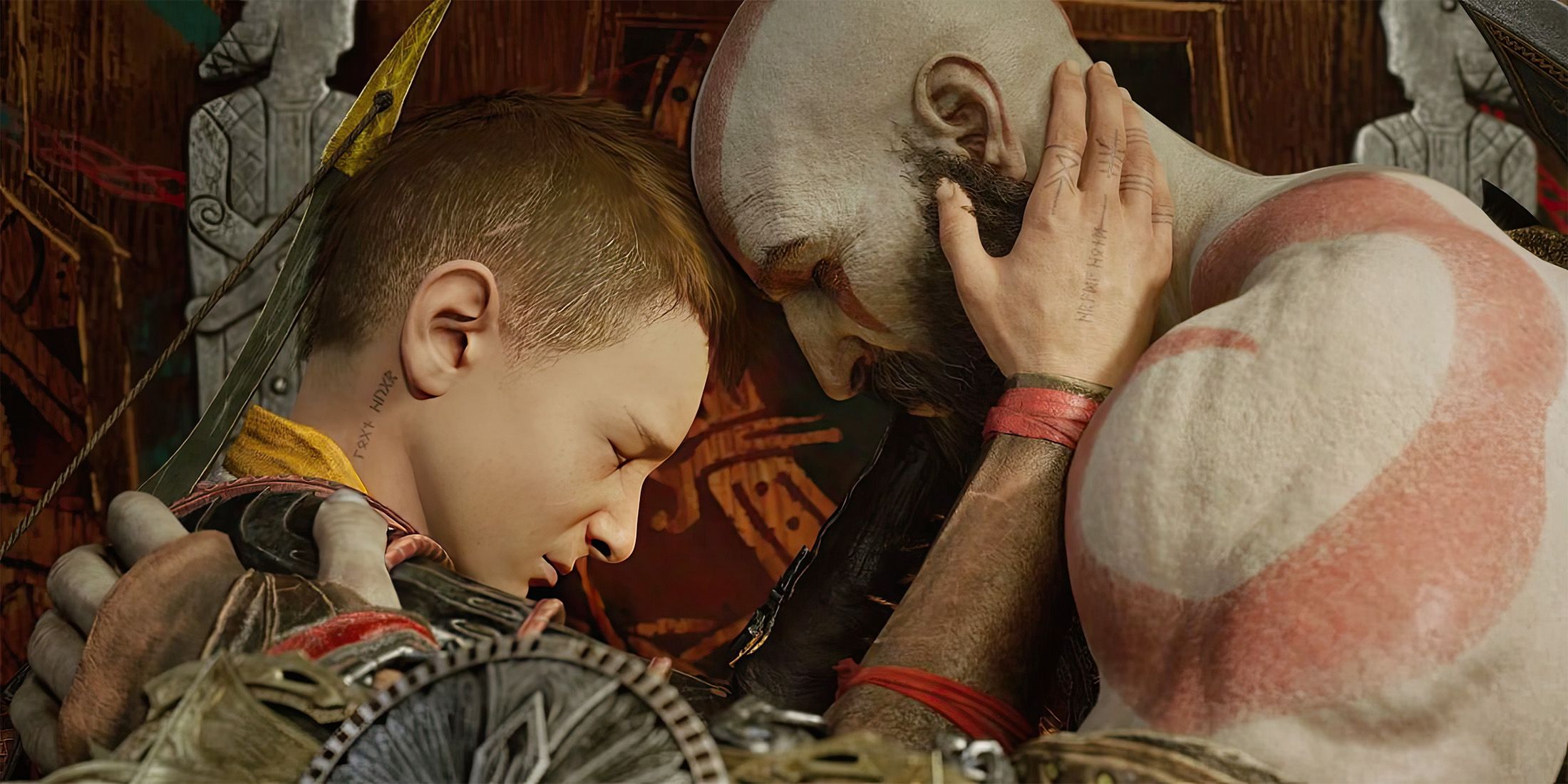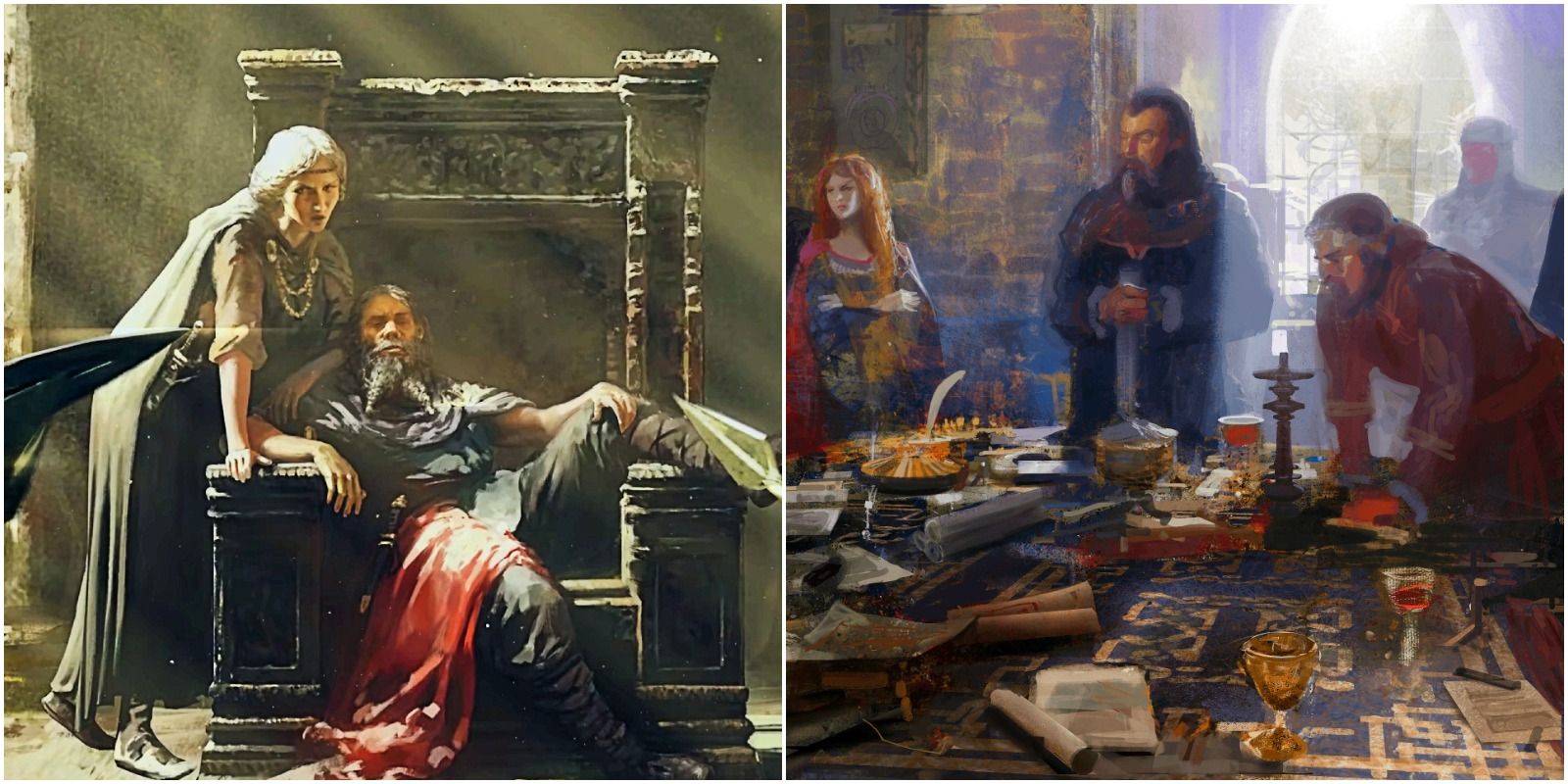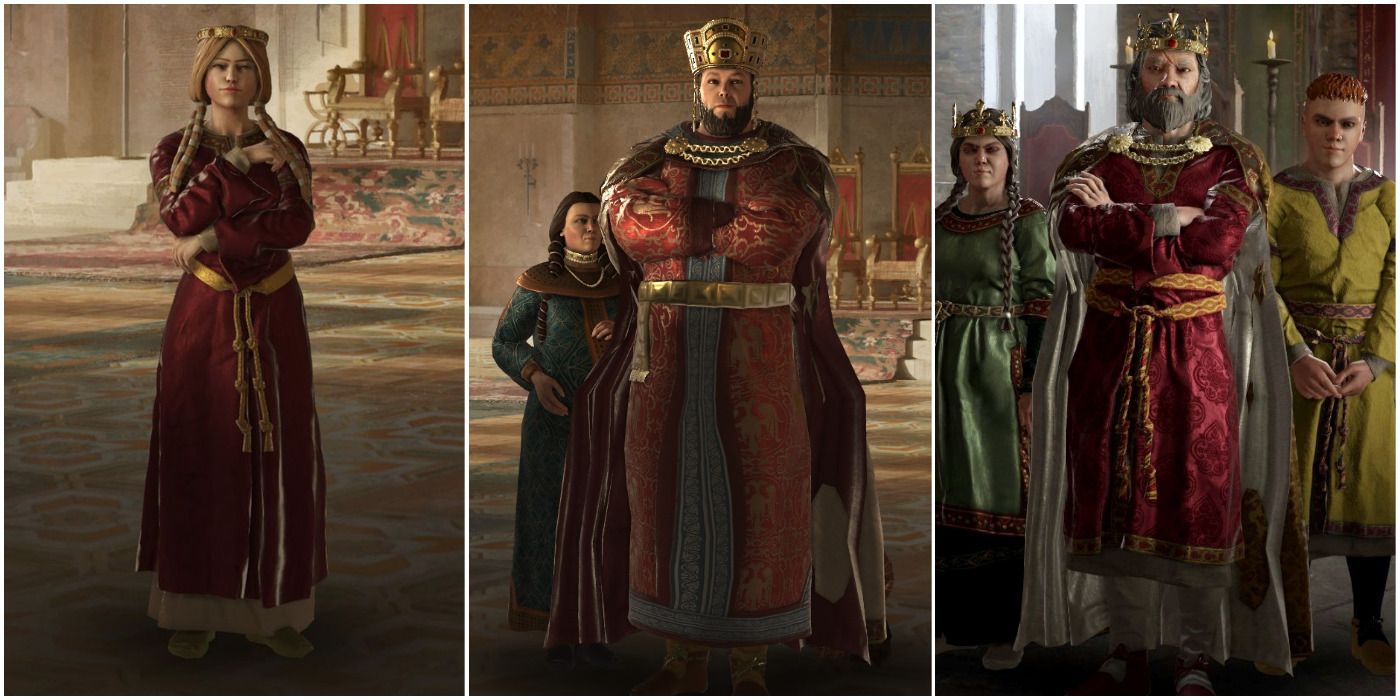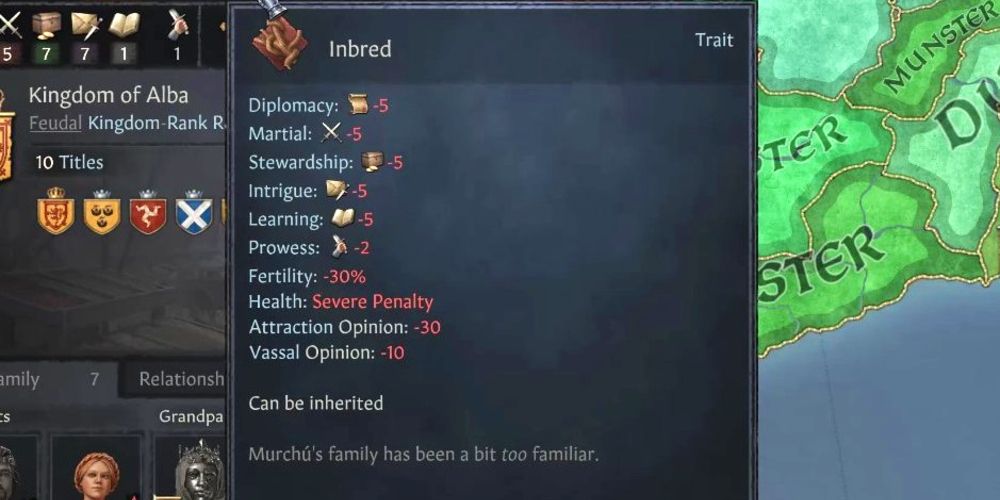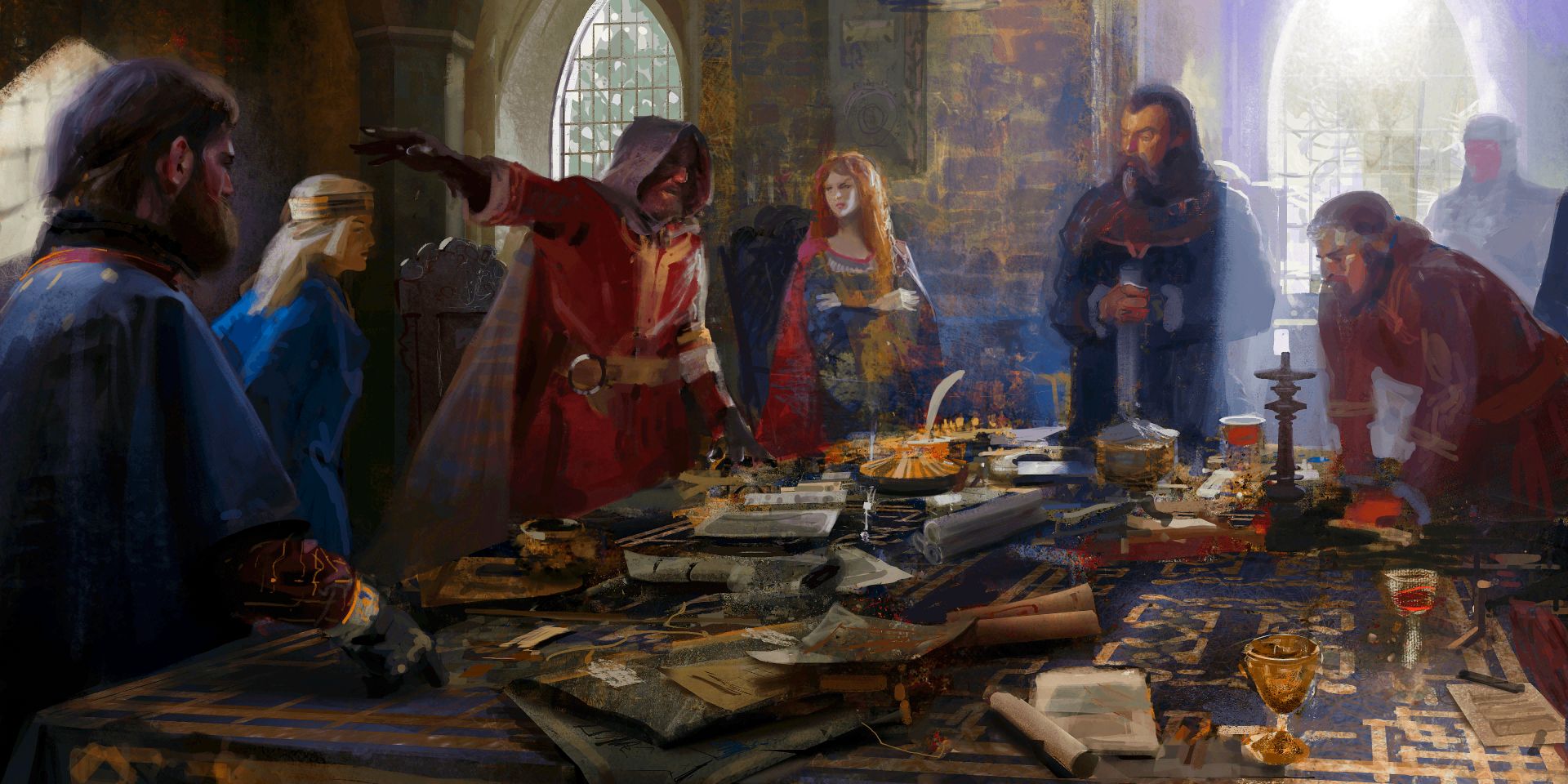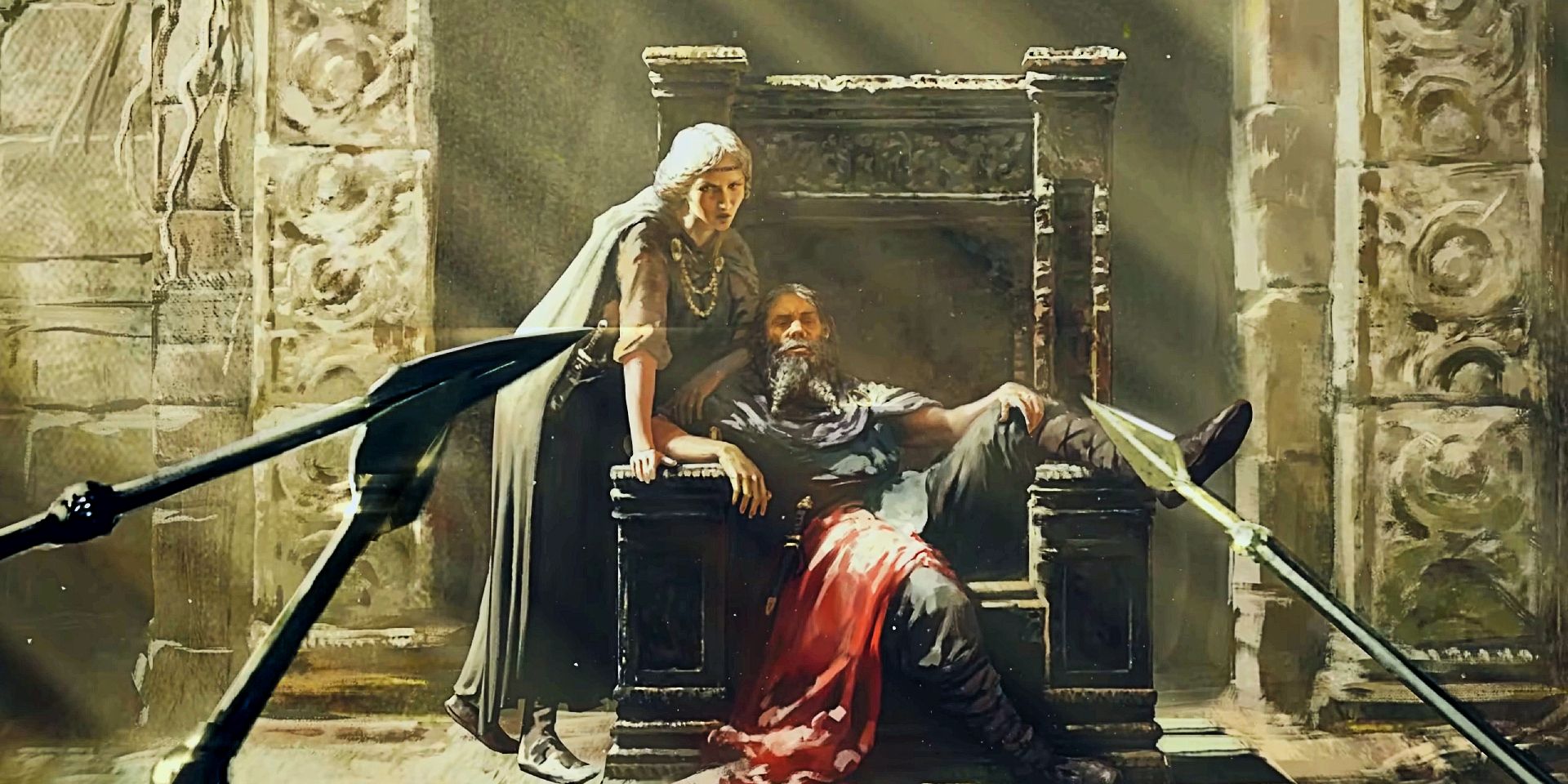Blood is thicker than water, they always say, and this is especially true in the world of Crusader Kings 3, as one's family, and dynasty, play crucial roles in a character's life. They can offer aid and support in a number of situations, though, most importantly, are potential playable characters.
Think of one's dynasty and family members as extra lives. When the character the player is living through dies, which is inevitable, they will then begin playing as their heir. An heir in Crusader Kings 3 does not necessarily have to be a child; they could be a sibling, cousin, or, if no Close Family (grandparents, parents, siblings, children, and grandchildren) or Extended Family members (aunts, uncles, first cousins, nieces, and nephews) are available, more distant blood relatives still within the dynasty are options.
Updated on September 30, 2021, by Reyadh Rahaman:Sometimes, however, family planning is not as straightforward as one would expect due to mechanics like Adultery and Incest being in Crusader Kings 3. Whether on purpose or by accident, these factors can heavily influence a character's reputation as well as the player's entire future dynasty.
As such, depending on an in-game character's religion, culture, and other influences, Adultery and Incest can be used to achieve various goals in the complex and crazy world of CK3. Just be sure to plan accordingly, as risky plays can end in disaster.
How Trait Inheritance Works
Congenital traits have a percentage chance to be passed down to a character's offspring, which is heavily influenced by whether or not both parents have the desired trait. There are also two ways in which a trait can be inherited: actively and inactively, and these options have separate inheritability chances.
Active Inheritance
Active inheritance is when the character's offspring inherits a trait and exhibits it physically. This can be noted by the icon labeled with the trait's name in the offspring's profile menu. The chances of a child actively inheriting a congenital trait significantly increase if both parents possess the same trait, though is still not guaranteed. This can be seen by the following table illustrating the different active inheritability percentage chances pertaining to the trait activity status of both parents.
Percentage Chance Per Child | No Trait (Mother) | Has Inactive Trait (Mother) | Has Active Trait (Mother) |
No Trait (Father) | 0% | 2% | 25% |
Has Inactive Trait (Father) | 2% | 10% | 50% |
Has Active Trait (Father) | 25% | 50% | 80% |
Inactive Inheritance
Along similar lines, inactive inheritance works following the same logic, though with different percentage chances. Unfortunately, it's not possible to see if a child possesses an inactive trait, as there is no in-game indication of such information. Players should keep in mind that the percentage chances of both active inheritance and inactive inheritance are considered simultaneously while the game is rolling the digital dice for the offspring's stats and traits. A child successfully inheriting both actively and inactively will simply be considered an active inheritor by the game.
Percentage Chance Per Child | No Trait (Mother) | Has Inactive Trait (Mother) | Has Active Trait (Mother) |
No Trait (Father) | 0% | 25% | 75% |
Has Inactive Trait (Father) | 25% | 50% | 100% |
Has Active Trait (Father) | 75% | 100% | 150% |
About Congenital Traits
Each congenital trait has a natural percentage chance to appear in every character in the game that is unrelated to inheritance. This percentage chance does stack with the inheritance chance, though, the natural chance of gaining a congenital trait is extremely low by comparison; usually less than 1%.
Many traits are classified by group, the members of which cannot appear simultaneously. For example, in the Intelligence group, there are the traits "Imbecile" and "Genius". If a character has the "Genius" trait, it will be impossible for them to have "Imbecile" or another trait from the Intelligence group.
Furthermore, some traits can only be inherited by inbreeding, which results when offspring are born to parents who are related by blood.
Inbreeding
Incest occurs when a character has romantic relations with someone they are related to by blood, such as a family member or someone in their dynasty that shares an ancestor. Whether or not this matters to the public is determined by the Consanguinity faith doctrine, as those who are part of a faith where Incest is considered legal will not suffer any negative opinion modifiers. However, those that are part of a faith that frowns upon such intimate relationships will gain the Is Incestuous secret for their character, which, if exposed to the public, will result in that character gaining the Incestuous trait.
Regardless of the faith and opinion modifiers involved with incestuous relationships, they will always affect the traits that can be inherited by offspring born from such reproductive unions, which is referred to in-game as Inbreeding. Here is a list of traits that can be inherited by children birthed from an incestuous relationship, which, it should be mentioned, are obtainable regardless of whether or not their parents possessed the same trait:
- Pure-Blooded
- Giant
- Dwarf
- Scaly
- Club-Footed
- Hunchbacked
- Sterile (or Barren)
- Wheezing
- Spindly
- Bleeder
Family Opinion Modifiers
Through marriages and births, one's family and dynasty will ideally flourish. There are many mechanics tied to these aspects that determine who one can get married to and how much one's family will mean to a character.
The first thing to consider is the value of a relationship and what the player means to others via the Opinion mechanic, which is how a ruler is perceived by others.
- Parent or Child: +50 Opinion
- Siblings or Grandparents: +25 Opinion
- Spouses: +25 Opinion
- Extended Family or Same Dynasty: +5 Opinion
Marriage
The bond that ties characters together is an immensely complex one with many variables, though, many benefits as well. Any character can be betrothed to another by various means, though only those 16 years of age and older can get married. Spouses (as well as consorts and concubines) can potentially create offspring with the player to produce a child heir as well as increase the size of the dynasty and gain some Prestige. Additionally, marriage is arguably the best way to form alliances with other nations, which is often very useful for both offensive land-taking and defense pacts against big threats.
Marriage Acceptance
To get married in CK3, one will have to send a proposal and have at least +1 in the marriage acceptance stat with that character or their guardian (for betrothals of characters under 16). There are many factors that can affect the marriage acceptance stat in varying degrees. They can be hard to remember, as there are many, so here they are for convenience:
- Strong hook: +200
- Weak hook: +100
- Promising Prospects Perk:+50 (self), +25 (family member)
- Spouse councilor: +50 (general), +75 (if heir)
- Player is AI's liege: +40 (general), +60 (marriage with liege)
- Dynasty Glory Perk: +30
- Marrying up: +30 (for each difference in title rank)
- Is the player's heir:+20 (primary heir), +10 (other heirs)
- Wishes well for Lovers: +15
- Unimportant courtier: +10
- Opinion: +0.25 per opinion with a prospective spouse, +0.75 per opinion with marriage offerer
- Prospective spouses are in love and AI has a compassion stat greater than zero: +0.25 per AI compassion
- Candidate's Level of Splendor: +the Level of Splendor
- Age of recipient: +(Recipient age - 20)
- Desires alliance: Situational
- Incorrect marriage (patrilineal/matrilineal): Situational
- Age Considerations: Situational
- The marriage will have Low Fertility: Situational
- Intimidated: Situational
- Terrified: Situational
- Character is dear to AI: Situational
- Different faith: −10, −25 (faith considered astray or hostile), −1000 (faith considered evil)
- Important courtier: −10
- Arranging own marriage: −15
- The candidate is Lowborn: −20, −120 (if the recipient is not lowborn)
- Prospective spouse is a parent of recipient's children: −25
- Marrying down: −30 for each difference in title rank (if they are King), −40 for each difference in title rank (if they are not King)
- Valuable claimant: −50
- The claimant to one of AI's titles: −50
- Does not want alliance: −100
- Faith does not have polygamy doctrine or polyamory tenet and a potential spouse would enter into a polygamous marriage: −1000
- The marriage would be incestuous: −1000
Faith Doctrines About Marriage
There are 4 specific doctrines that determine who a character can marry, how many spouses they can have, the fate of illegitimate children, and whether or not divorce is legal.
- Marriage Type: determines if the relationship is monogamous, polygamous, or grants the legality of consorts and concubines
- Consanguinity: determines if incestuous marriage is legal
- Bastardy: whether or not bastards (children born outside of marriage) can be legitimized or not
- Divorce: can separate legally from a spouse (divorced character gets −25 Opinion for 50 years with their ex-spouse and their Close Family members get −5 Opinion for 5 years)
Monogamy & Polygamy
Whether a ruler can have 1 or more spouses will directly determine how fast one's family and dynasty grows. The maximum number of partners that the player can have in the game is 4; 1 main spouse and 3 secondary ones.
Since Monogamy and Polygamy are traits that come under Faith Doctrines, marrying a character with the opposite aspect the player has is possible, though not advisable, as their Opinion will decrease significantly.
Furthermore, if a ruler is polygamous, they will be expected by the general public to have a certain number of spouses based on their title. Players will get -0.5 Piety per month for having the wrong number of partners, therefore, take a look at this list to determine which is the right amount:
- Unlanded: 1
- Baron: 1
- Count: 1
- Duke: 2
- King: 3
- Emperor: 4
Adultery
Similar to how Incest works, players who are in a romantic relationship with anyone other than a legal spouse will gain the Lover secret, which, if revealed, can result in both involved characters gaining the Fornicator and Adulterer traits. However, whether or not these traits are gained depend on the adultery marriage doctrines of one's culture (considered to be Crime doctrines).
If the adulterous relationship is made public, children born from this relationship will gain either the Bastard or Wild Oat trait, depending on the legality of Adultery in one's nation. The factor determining the label applied to such offspring is known as the bastardry doctrine.
Crusader Kings 3 is available on Microsoft Windows, macOS, Linux, Xbox Series X, Xbox Series S, and PlayStation 5.



